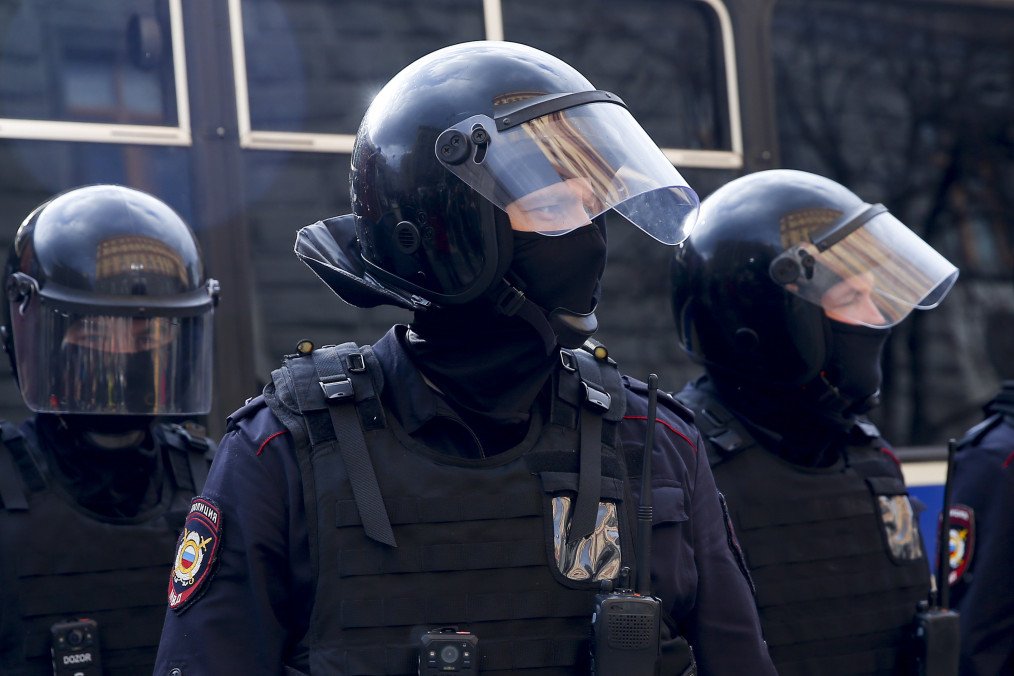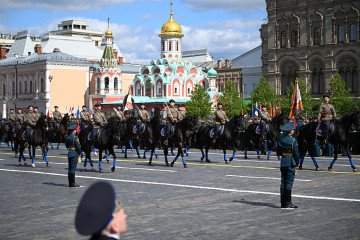- Category
- Latest news
Russian Authorities Launch Daily Crackdowns on Alleged Suspects Tied to Ukraine’s Spider Web Operation

After a major setback that cost the Russian military at least 12 strategic bombers destroyed by Ukraine’s intelligence services, the Federal Security Service (FSB) began issuing daily reports on the capture of alleged “terrorists” and “saboteurs” operating on Kyiv’s orders.
On June 9, the FSB announced the arrest of two Russians accused of planning sabotage at defense industry facilities in the Moscow region. According to the agency, the men had contacted a banned Ukrainian organization via Telegram, secured jobs at a defense plant under its instructions, and attempted to smuggle homemade explosives disguised as power banks onto the premises. A case of treason has been initiated against the detainees.

The following day, on June 10, the FSB reported arresting a 22-year-old Russian national in the Krasnodar region, who was allegedly recruited by Ukraine’s Security Service (SBU) through WhatsApp. Under the guidance of Ukrainian handlers, he planned to carry out a terrorist attack.
According to the FSB, he intended to retrieve a 2.5 kg homemade explosive device from a hideout and use it to blow up an administrative building at one of the region’s energy facilities. The FSB also stated that the detainee had been photographing military sites for Ukrainian authorities and gathering information on the movements of Black Sea Fleet vessels.
A case has been initiated against him for attempting to commit a terrorist act and illegal possession of explosives.
-4676ce0bd34d925e23bfd37c19049f5d.png)
On June 11, the FSB reported the arrest of a Ukrainian intelligence agent in the Novgorod region, who was allegedly planning to bomb the car of a "SVO veteran.”
According to the FSB, the Ukrainian national, born in 1997, contacted a handler in Kyiv via Telegram and acted on their orders. He retrieved a homemade explosive device from a hideout to plant it on the car but was apprehended before carrying out the attack.
Prior to this, the FSB claims, he had set fire to two vehicles displaying “SVO” symbols, conducted reconnaissance on critical infrastructure sites, and gathered information on employees of defense enterprises and leaders of volunteer organizations in the region. A case has been initiated against him for preparing a terrorist act and illegal possession of explosives.
On June 1, Ukraine launched coordinated drone strikes on four military airfields deep inside Russia. targeting over 40 combat aircraft, including Tu-95MS and Tu-22M3 strategic bombers.
According to the Security Service of Ukraine, which carried out Operation Spider Web, the strikes damaged or destroyed 34% of Russia’s strategic cruise missile carriers.

-f88628fa403b11af0b72ec7b062ce954.jpeg)

-111f0e5095e02c02446ffed57bfb0ab1.jpeg)

-72b63a4e0c8c475ad81fe3eed3f63729.jpeg)


